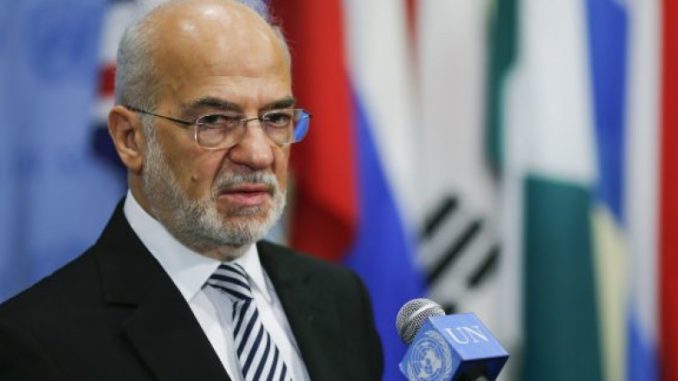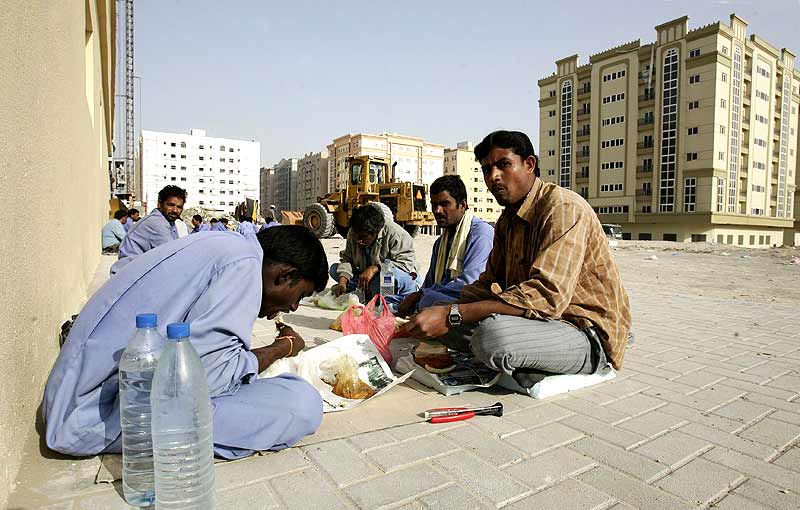
Iraqi Foreign Minister Ibrahim al-Jaafari says he had carried messages between Iran and Saudi Arabia since last year in order to help the improvement of relations between the two powers.
Jaafari said Iraq continues to work toward the restoration of relations between Tehran and Riyadh.
He added that any crisis in the relations between Iran and Saudi Arabia affects Iraq as well and a rapprochement between the two countries would also benefit Iraq.
The top Iraqi diplomat said he has carried oral messages between Iranian and Saudi officials in the past few months and added that his country would make efforts to bring the positions of Tehran and Riyadh closer.
“The (mediation) steps have continued since last year, and I have exchanged messages between the two countries … because any crisis in Iranian-Saudi relations affects Iraq as well, and a rapprochement between them would also benefit Iraq,” Iraq’s Ibrahim al-Jaafari was quoted by IRIB’s website as saying.
“I have carried oral messages between officials of the two countries in the past few months and we will try to bring their positions closer,” Jaafari said.
To answer the question of Iraq’s interest in close ties between the two powers, sources said that Iraq sent Jaafari to Tehran a year ago with an offer to mediate in the feud between Saudi Arabia and Iran, reflecting Baghdad’s fears that new sectarian conflict could affect its military campaign against Islamic State.
Saudi-Iran dispute
Some say that the relations between the two regional rivals worsened after hundreds of people, many of them Iranians, died in a crash at the 2015 Muslim haj pilgrimage in Saudi Arabia, in addition to executing a Shi’ite cleric a year ago by Saudi authorities followed by angry Iranian protesters storming the Saudi embassy in Tehran.
However, the truth is that the rivalry became clear following these incidents, but it was hidden and expressed as a political tension between the two powers which seek to have the bigger influence in the region.
The past year witnessed Iran’s victory over Saudi Arabia in many dispute points in the region.
In Yemen, Iran backed the Houthi militias who fought against the Saudi-backed government and overthrown it. The Houthis were able to control large areas of Yemen and Saudi launched a campaign against them but couldn’t neutralize their power. The Houthis then made direct attacks against the Saudi land.
“Yemen will be Saudi Arabia’s Vietnam,” says a contemptuous Iranian official. “It is bleeding the Saudis’ military and diplomatic prestige.” If Saudi Arabia agrees to leave the rest of the region, he says, Iran will let it keep Bahrain, the little island state linked by a causeway to Saudi’s eastern coast.
Iran also firmed its grip on Lebanon, when Saad Hariri, who heads Lebanon’s Sunni bloc and is backed by Saudi Arabia, has accepted the post of prime minister under Hezbollah’s choice for president.
The Hariri-led alliance that struggled with Hezbollah for more than a decade, only to see the heavily armed Shi’ite group go from strength to strength in Lebanon and the wider region.
Iran also supported Assad regime by money and fighters to defend his role agaisnt the Saudi-backed Sunni rebels, in return to freeing Iran’s hand in Syria to achieve its long-awaited dream. Iran started a demographic change in the Sunni-populated areas in Syria and sought to change the face of the Syrian cities by forcing the Shiite festivals in the heart of Damascus, adding Syria to the list of its controlled areas and making it gradually the 32nd Iranian province.
Egypt’s President, Abdel-Fattah al-Sisi has left the Saudi campaign too. The Saudis supported his military coup in Egypt and funded with billions of dollar during the past years, but he left them and made overtures to Syria, Russia and even Iran as he sensed Saudi’s weakness.
However, the two powers were still able to find some points to agree.
The two rivals signed finally a deal to cut oil output with OPEC after months of negotiations. Both Suadi and Iran were failing to cover domestic spending, let alone foreign adventures and needed a stable market to fund their internal and external expenses.
In addition, an Iranian official confirmed on Monday that Saudi Arabia had invited Tehran to discuss arrangements for the annual haj.
How will the two countries respond the Iraqi mediation? Will they find more mutual interests and have closer ties or will they complete their influence game to control the region with Turkey as a new player in Saudi’s side? Only the coming months will show.



